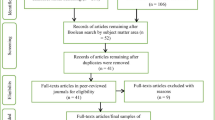Abstract
Science in schooling has for the first time been recently considered as a verified whole for the 10 or 12 of its compulsory years, rather than for a limited sector of schooling or for a particular group of students. This has also been occurring as part of a wider review and plan for the whole curriculum of schooling. A framework has been provided consisting of a matrix of strands of intended content for learning across a number of levels approximating the years of schooling. There is a sense and expectation of continuous progression in the learning of science. Earlier notions of progression in science curricula are explored and compared with what has now appeared in the national curricula in England and Wales, New Zealand and Australia. The notions of curriculum opportunity and curriculum purpose for science education are introduced as factors that would lead to a shift in the sense of progression from a focus on Science itself to an emphasis on the learners' changing need of Science as they progress through the years of schooling.
Similar content being viewed by others
References
Andersson, B. (1989).Grundskolans naturvetenskap. Stockholm: Skola I Utveckling.
Black, P. & Simon, S. (1992). Progression in learning science.Research in Science Education, 22, 45–54.
Bruner, J.S. (1960).The process of education. Cambridge, MA: Harvard University Press.
CLIS. (1987).Approaches to teaching the particulate theory of matter. Leeds: Centre for Studies in Science and Mathematics Education, University of Leeds.
de Vos, W. (1989/90).Chemie in duizend vragen. Utrecht: Rijksuniversiteit, Utrecht.
Driver, R., Squires, A., Rushworth, P. & Woods-Robinson, V. (1994).Making sense of secondary science. London: Routledge.
Fensham, P.J. (1991). Science and technology, Ch.28. In P.W. Jackson (Ed.)Handbook of research in curriculum, Chicago: Macmillan, AERA.
Fensham, P.J. (1994). Science Education, InShaping the future, Vol. 2, Report of the Review of the Queensland School Curriculum. pp. 301–330. Brisbane: Queensland Government Printer.
Hirst, P.H. (1969).Knowledge and the curriculum. London: Routledge & Kegan Paul.
NSTA. (1964).Theory into action. Pamphlet No. 471-14282, Washington, D.C.: National Science Teachers Association.
Phenix, P.M. (1964).Realms of meaning. New York: McGraw-Hill.
Roberts, D. (1982). Developing the concept of “curriculum emphases” in science education,Science Education, 66, 243–60.
Smith, N. (1988). In support of an application-first chemistry course: Some reflections on the Salter's GCSE scheme.School Science Review, 70, 108–114.
Speedy, G., Fensham, P., Annice, C. & West, L. (1989).Discipline review of teacher education in mathematics and science, Vol. 1. Report and recommendations. Canberra: Department of Education, Employment and Training.
Author information
Authors and Affiliations
Additional information
Specializations: science curriculum, environmental education, equity in education
Rights and permissions
About this article
Cite this article
Fensham, P. Progression in school science curriculum: A rational prospect or a chimera?. Research in Science Education 24, 76–82 (1994). https://doi.org/10.1007/BF02356331
Issue Date:
DOI: https://doi.org/10.1007/BF02356331




